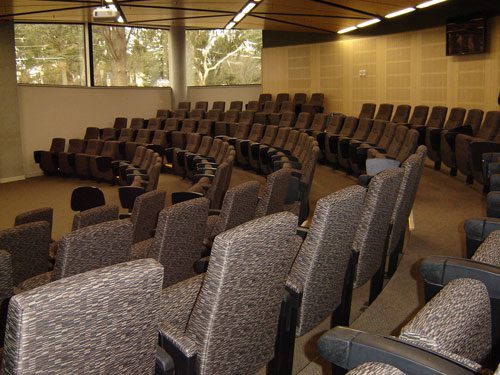The SRC passed a motion last week endorsing changes to university admissions on the condition that they seek to increase equity and diversification in the student body.
The motion was put forward by the education officer, Robyn Lewis, and seconded by the vice-president, Eleanor Kay, at the SRC meeting held on 10 May.
The motion read: ‘The ANU Students Association will only endorse changes to admissions, scholarships and accommodation ASA if they are based on an overarching goal of increasing equity in admissions and diversification of the student body.’
The motion is ANUSA’s response to the ANU’s plan to change admissions requirements, and promoted widespread debates on the issues associated with university admission and equity.
The current plan is for one admission system and form to be used for applications, scholarships and accommodation. The form should include questions relating to extracurricular activities and any disadvantage experienced.
Kay said in the SRC meeting that she was impressed by the level of focus on equity in the plan, but that there was no clear proposal set in place yet.
The motion means that when a system is proposed, the SRC will rediscuss it. The motion also makes the changes a regular discussion point of future College Representative Council (CRC) meetings, with reports from the movers of the motion. It was suggested by Kay that the motion would see the system pass through the Committees before discussion at the SRC.
Many students at the SRC meeting raised concerns about the apparent Americanisation of the admissions system, with some recognising that such a system would still advantage the upper class. This was reflected in the CRC meeting which took place in late April.
The April CRC meeting revealed more information on the system, which will be ‘algorithmic’ in its approach to extra-curriculars, with students ticking a box and denoting the frequency of their participation.
Kay reaffirmed at the SRC meeting last week that part-time work and carer roles would be included in this part of the system, to ensure socio-economic disadvantage isn’t perpetuated.
Educational disadvantage and disability is also to be taken into account, but under a separate umbrella to extracurricular activities.
However students raised concerns about the ability for the ANU to support students once they arrived at the ANU. The academic Colleges have expressed concern at the ability for students with lower ATARs to succeed in more rigorous degrees. Kay linked this concern with the ability for those struggling academically to seek adequate mental health support.
‘If you put a student that doesn’t have the academic background in a degree there is significant strain on their mental health … it can be really detrimental to you as a person,’ she told the meeting.
One member of the SRC raised concerns about the financial strain of accommodation and textbooks, and the lack of support available to students.
It appears the university is already responding to such concerns, with scholarships moving to a more needs-based approach into the future. The current system focuses on academic proficiency.
Debate continues on whether the new holistic approach will exclude high-achieving students with no extra-curricular engagement. Speaking against the idea at the CRC meeting was representative Felicity Brown, who argued: ‘If we shut out people who got 99, we’re blocking those people who can help find cures for disease.’
Brown suggested that those achieving over 90 be exempt from needing extra-curricular requirements. Marnie Hughes-Warrington, the deputy vice-chancellor (academic), indicated in February that even a student with an ATAR of 99.95 would not be accepted if they did not meet extra-curricular requirements.
Ultimately, the motion was considered by SRC members to be part of an ongoing advocacy role ANUSA plays in creating a more equitable ANU.
It is part of an ongoing discussion where we are ‘holding the university to account,’ said Lewis.
We acknowledge the Ngunnawal and Ngambri people, who are the Traditional Custodians of the land on which Woroni, Woroni Radio and Woroni TV are created, edited, published, printed and distributed. We pay our respects to Elders past and present. We acknowledge that the name Woroni was taken from the Wadi Wadi Nation without permission, and we are striving to do better for future reconciliation.
